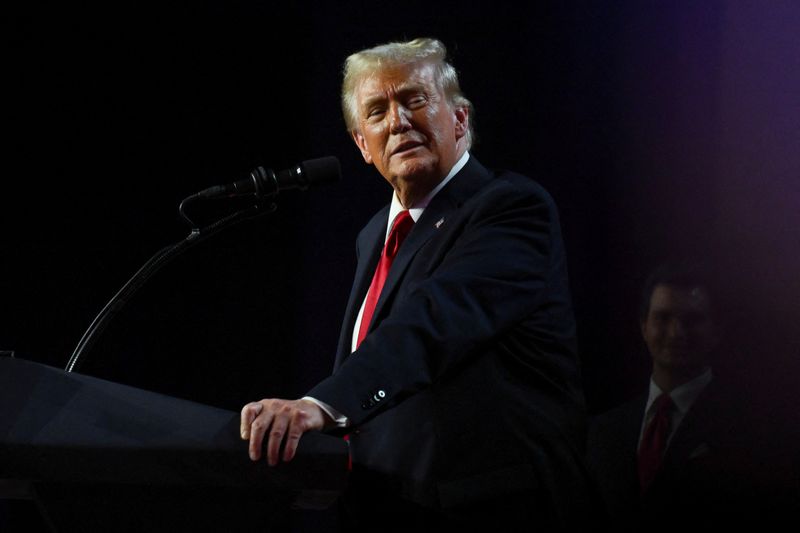
Although Powell’s appointment does not end until 2026, media reports have suggested that some of Trump’s advisers are pushing for him to name a successor to the Fed Chair. This person would issue parallel statements, potentially persuading bond markets to take cues not from Powell and the Fed but from the incoming official, the Piper Sandler analysts said.
“Presto, the White House can thereby wrestle away the transmission of monetary policy,” the analysts said in a note to clients.
Last week, Powell flatly rejected notions that Trump could dismiss him from his post, telling reporters that he would not resign if asked to by the upcoming administration. Powell would also likely lodge a legal challenge to any attempt to oust him before his term comes to a close, the Wall Street Journal has reported.
For his part, Trump has not recently indicated any plans to try to force out Powell, saying in June that he would allow Powell to serve out the remainder of his term “especially if I thought he was doing the right thing.” Trump’s advisers are split on how far he should take the matter, the WSJ reported.
Bringing forth immediate changes at the Fed will likely be more complicated for Trump than in his previous four-year tenure in the White House, particularly as the institution does not have an open spot on its seven-person board.
Meanwhile, any changes at the Fed may threaten to disrupt an ongoing bid by policymakers to defeat inflation without sparking a meltdown in the wider economy or labor demand. Last week, the Fed slashed rates by 25 basis points and said activity remains on a “solid pace,” although markets remain uncertain about the timeline for future reductions.
Some analysts have speculated that Trump’s proposed policy changes, especially a blanket tariff on US imports, could drive up inflation and lead the Fed to leave rates at a higher level than initially anticipated. This uptick in volatility may exacerbate the possibility of a clash between the Fed and the new Trump administration, the WSJ said.
Still, the Piper Sandler analysts say Trump “seems likely to play nice” regarding the Fed’s independence, arguing that leaving the central bank alone will be the “best and easiest option” for the president-elect to pursue his preference for low interest rates — especially if his policies expand the US federal deficit. An larger deficit could force the government to sell more bonds to finance its debt, possibly driving up overall borrowing costs.
“If the new administration is, as everyone expects, unlikely to make a dent into deficits, then numerical inflation goals and central bank independence seem like effective offsets for keeping borrowing costs as low as possible,” the Piper Sandler analysts said.
To read the full article, Click Here
